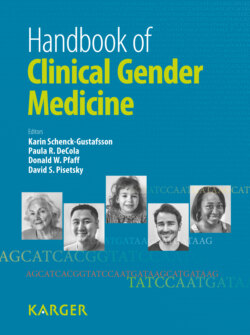Читать книгу Handbook of Clinical Gender Medicine - Группа авторов - Страница 35
На сайте Литреса книга снята с продажи.
Considerations Moving Forward
ОглавлениеThere is, however, one country thus far that has managed to return from imbalanced SRBs to normal ratios: South Korea. There is still considerable dispute about the factors involved in this turnaround [45], with many institutions and actors ready to take credit (as the old saying goes: success begets many fathers). Available evidence, however, seems to suggest that South Korea’s U-turn in SRBs was influenced less by government policy than by civil society: more specifically, by the spontaneous and largely uncoordinated congealing of a mass movement for honoring, protecting, and prizing daughters. In effect, this movement - drawing largely but by no means exclusively on the faith-based community - sparked a national conversation of conscience about the practice of female feticide - a conversation that was instrumental in stigmatizing the practice. This was not altogether unlike the way in which nationwide conversations of conscience had helped to stigmatize international slave-trading in other countries in earlier times. The best hope today in the global war against baby girls may be to carry this conversation of conscience to other lands. Medical and health care professionals - without whose assistance mass female feticide could not occur - have a special obligation to be front and center in this dialogue.
